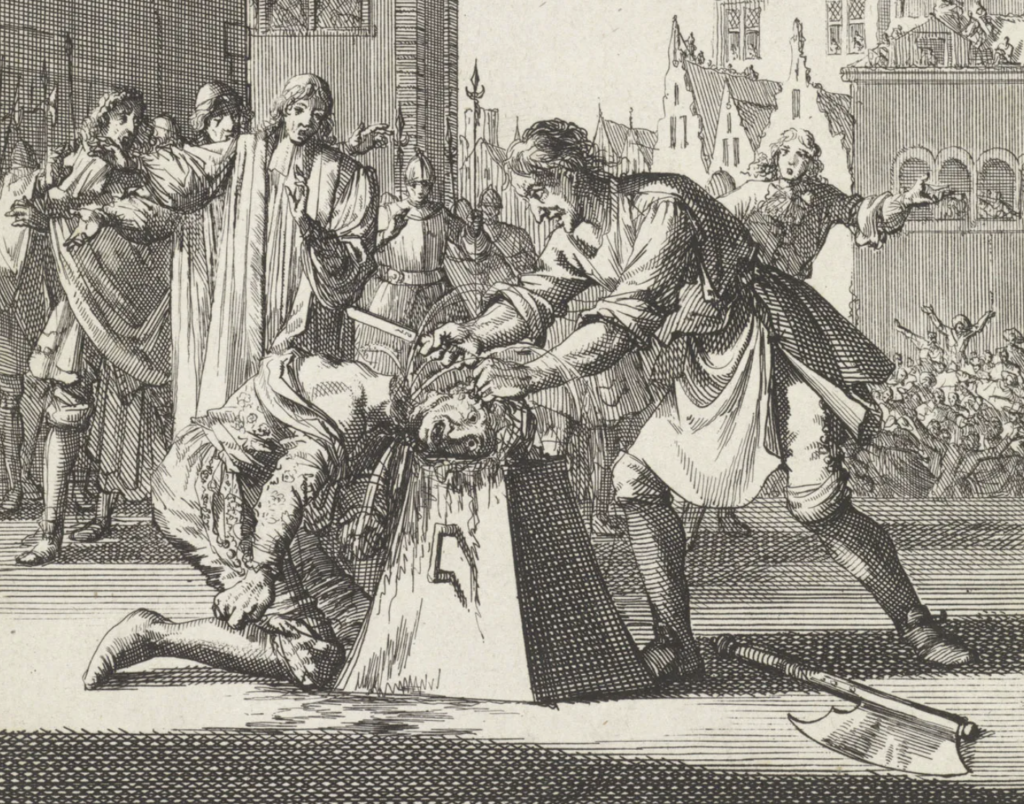Pope Boniface VIII went down in history as one of the most controversial popes of all time. His conflicts with the state, particularly the French King Philip IV, led to a posthumous trial against him for heresy.
Here, we delve into the events that laid the groundwork for his trial, the accusations levied against him during the trial, and its outcome.

Political Conflicts During Boniface VIII’s Pontificate
While the separation of church and state has been an enduring ideology, Pope Boniface VIII was one of the boldest and most politically involved church leaders. He often expressed his political inclinations in his office and tried to influence monarchs.
When his pontificate began in 1294, there were two important and ongoing global wars. One was between England and France regarding the dominion over Flanders and Guyenne. The second was between Aragon and Naples regarding the island of Sicily.
It was a turbulent time for the Mediterranean island of Sicily. Peter III of Aragon had just died and his son, Frederick, was due to succeed him. Though Boniface tried to coax Frederick not to accept the throne, Frederick accepted the responsibility and Boniface was forced to accept Sicily’s sovereignty under the new king.
Boniface also tried to end the conflict between the English King Edward I and the French King Philip IV.
Meanwhile, he found himself in the middle of another issue. The mounting taxes on the clergy were mandated by the two kings without the pope’s permission.
In 1296, Pope Boniface VIII responded by publishing Clericis laicos. This was a bull that prevented the monarchs from imposing taxes on the clergy without papal consent. Failure to get the pope’s express license would result in a king’s automatic excommunication.
England followed the rule under the Clericis laicos to some extent. This was mainly due to support from Robert Winchelsey, the archbishop of Canterbury. However, it did not have much effect in France as there was no strong support from the region.
Increasing Friction Between Boniface VIII and Philip IV
In 1301, another conflict erupted between Boniface VIII and Philip IV. This time it was over the false accusations, trial, and imprisonment of Bernard Saisset of Pamiers, a French bishop.
In return, Boniface VIII issued the bull Ausculta fili, expressing his strong disapproval of the king’s actions. He also asked for amends, particularly the bishop’s release from prison.
Pierre Flotte, the king’s chancellor, circulated an altered extract of the papal bull, steering public opinion against the pope. A year later in 1302, Philip IV’s new councilor, Guillaume de Nogaret, led an anti-papal royal policy. Philip IV found many allies for this policy, including the French canon lawyer Jean Lemoine aka Johannes Monachus.
During the same year, Philip IV and his aides raised many false accusations against the pope at a hush-hush assembly at the Louvre in Paris. Some of the accusations included the pope’s illegal entry into the papal office and heresy. These accusations later became the basis of the pope’s posthumous trial by Philip IV.
During the meeting, Nogaret called for the pope’s condemnation by a general council of the church. Soon after the gathering, Nogaret traveled to Italy to instigate a revolt against Boniface VIII which was unsuccessful.

Boniface VIII’s Capture and Death
In 1303, Nogaret received news that Pope Boniface VIII was planning to issue a bull declaring Philip IV’s ex-communication.
Learning that Boniface VIII was in Anagni, Nogaret immediately approached a few cardinals. He went to Sciarra Colonna — a member of the influential Colonna family — and Anagni’s local leaders for help. Together, they seized Boniface VIII at Anagni and asked him to resign.
However, Boniface VIII told them that he would rather die than resign. He was released after three days.
During Boniface VIII’s captivity, he was subjected to ill-treatment. Physically and mentally shattered, he passed away on October 11, 1303, just one month after his release.
Posthumous Trial Against Boniface VIII
After Pope Boniface VIII died, Philip IV and his allies pressured Clement V, the new French pope, to instigate a posthumous trial against the pope’s memory.
After the pontificate was shifted to Avignon, Pope Clement V felt increasingly embarrassed and burdened by the material against Boniface VIII that came from the previous pope’s accusers. He ultimately relented to Boniface VIII’s trial in 1309.
During the judicial investigation which lasted between 1303 and 1311, Philip IV and his aides hurled many accusations against Boniface VIII.
Some accusations were that Boniface VIII supposedly made many bold statements that were considered nihilist or hedonist and partially even critical and freethinking. According to them, he supposedly declared statements to the effect of:
- Christianity is invented by human beings like the religions of the Arabs and the Jews.
- The dead will not rise just like my horse that expired yesterday.
- When Mary gave birth to Jesus Christ, she was not a virgin just like my mother wasn’t when she bore me.
- Just like washing one’s hands, sex and satisfying natural desires are not a sin.
- Heaven and hell exist only on Earth. For the healthy, happy, and rich, this is heaven on Earth while for the sick and the poor, this is hell on Earth.
- The world will last forever, only human beings don’t.
- All religions, particularly Christianity, have a few truths and many errors. Christian untruths include the trinity, Jesus Christ’s divine nature, the virgin birth, the transubstantiation of bread and wine into Jesus Christ’s body and blood, and the resurrection of the dead.
Understandably, scholars remain divided about the authenticity of these statements, especially since there is no proof that Pope Boniface VIII said them.
End of the Trial
On June 28, 1310, Clement released a mandate expressing his concerns about the testimonies’ quality and the accusers’ and witnesses’ corruption. He went on to declare that people committing perjury in future examinations would face ex-communication.
Meanwhile, an ecclesiastical consistory held a judicial investigation against Pope Boniface VIII’s memory at Priory Groseau near Malaucène in France. It consisted of preliminary examinations conducted in August and September 1310.
It gathered testimonies regarding Boniface VIII’s heresy and offenses, which included sodomy. However, this accusation lacks substantive evidence. It is also possible that Philip IV used it as a common accusation against his enemies as the Templars also faced the same charge.
Meanwhile, despite many accusations put forward by Philip IV and his aides for eight years, Boniface VIII was not condemned in the end. In 1311, the trial was abandoned without reaching any verdict.
That the Catholic Church meddled in the affairs of the state certainly wasn’t anything new. However, few church leaders went to the extent that Pope Boniface VIII did. His struggle for power against King Philip IV was aggressive and eventually led to his demise.

